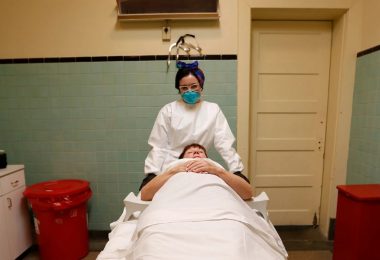
Why is nursing critical in healthcare? Nurses provide hands-on care for patients, give doctors the information they need to make decisions for their patients’ care, and work the front lines in all healthcare settings. Nursing is a challenging field where every day is different, but it can also be a gratifying career if you can handle a nurse’s role.
Job Description
Patient care is the major duty of a nurse. The nurse and the patient spend a great deal of time together. Nurses observe and assess patients, assist doctors in preparing a care plan, and implementing that care plan with treatment administration and medication. Nurses use multiple medical pieces of equipment for both performing and monitoring treatments. They may also take vitals, do diagnostic tests, and interpret the results.
Nurses assist patients in learning how to make healthy choices. Patient education is another crucial part of the job. After a medical diagnosis, the nurse helps caregivers and the patient understand the diagnosis and learn how to cope with it. At inpatient centers, the nurses handle the discharge instructions, assisting patients in understanding what to do after they are discharged. Nursing responsibilities also include lots of documentation and paperwork. Nurses write down current symptoms as well as patient histories. They document each detail during patient care, including the amounts and when medications are administered.
Recommended Articles :
How To Become A Neonatal Nurse
What You Need To Become A Nurse Practitioner
How To Become A Registered Nurse
Education Requirements
At the least, registered nurses need to complete an associate’s degree in nursing or a nursing diploma to receive the relevant licensure. The program generally takes 2 to 3 years from beginning to end and includes clinical rotations for hands-on training.
Pursuing a bachelor’s degree in nursing is becoming increasingly sought after. These 4-year programs give you additional clinical experiences and more in-depth learning. A Bachelor of Science in Nursing degree (BSN) makes you more attractive to potential employers and may provide you with access to other career options, such as leadership roles, teaching, consulting, and research. After you gain some nursing experience, you may choose to pursue a master’s degree to practice as a clinical nurse specialist. This route is particularly useful if you want to be involved in the research.
No matter which education path you choose, you need to maintain and earn licensure in your state. That requires you to pass the NCLE (National Council Licensure Examination). Some states may have other qualifications and certifications necessary. Criminal background checks are also required.
Industry
Nurses can find jobs in almost every type of healthcare setting. Hospitals employ the most significant number of nurses, with sixty-one percent of the nursing workforce. The next most extensive kind of workplace for nurses includes outpatient facilities and doctor’s offices. These types of facilities are generally slower-paced than hospitals, but nurses spend most of their shifts on their feet irrespective of where they are employed.
The nursing profession may put you in potentially risky situations. You may be exposed to hazardous chemicals or infectious diseases. Combative patients and needle sticks are also a possibility.
Working hours vary based on where nurses are employed. If they work in a doctor’s office, they can expect to work daytime hours mainly. Hospitals need nurses twenty-four hours a day throughout the year, so their hours may be varied, including overnight hours or shifts on holidays and weekends.
How Much Do Nurses Make
The median yearly pay for an RN (registered nurse) is $73,300 as of May 2019, which is inferred as the midway point where half of the nurses in the field earn less money while the other half earn more(1). The lowest ten percent of nurses make below $52,080 annually. At the high end, the top-paid ten percent make over $111,220. Nurses who are fresh out of college can find jobs right away without prior experience.
Careers in Europe: An entry-level Registered Nurse (RN) with less than one year experience can expect to make an average total compensation (includes bonus, tips, and overtime pay) of €23,008 (Italy). An early career Registered Nurse (RN) with 1-5 years of experience makes an average total remuneration of €24,500. A mid-career Registered Nurse (RN) with 5-10 years of experience makes an average total remuneration of €23,500. An experienced Registered Nurse (RN) with 10-20 years of experience makes an average total compensation of €26,058.
Careers in Asia: An entry-level Registered Nurse (RN) with less than one year experience can expect to make an average total remuneration (includes bonus, tips, and overtime pay) of S$32,559. An early career Registered Nurse (RN) with 1-5 years of experience makes an average total compensation of S$34,193. A mid-career Registered Nurse (RN) with 5-10 years of experience makes an average total compensation of S$39,958. An experienced Registered Nurse (RN) with 10-20 years of experience makes an average total compensation of S$50,247. In their late-career (20-plus years), employees make an average total compensation of S$53,500.
Job Growth Trend
Healthcare services of all kinds continue to experience growth, partly because of an increase in the aging population with more health disorders to treat. Because of this higher demand for care, the nursing field has an estimated growth of fifteen percent between 2016 and 2026. That’s a much quicker growth rate than overall career growth. Between the increased demand for nurses and the retirement of present nurses, there will be many jobs available. However, many people go to nursing school, so there is fierce competition for the best jobs.




